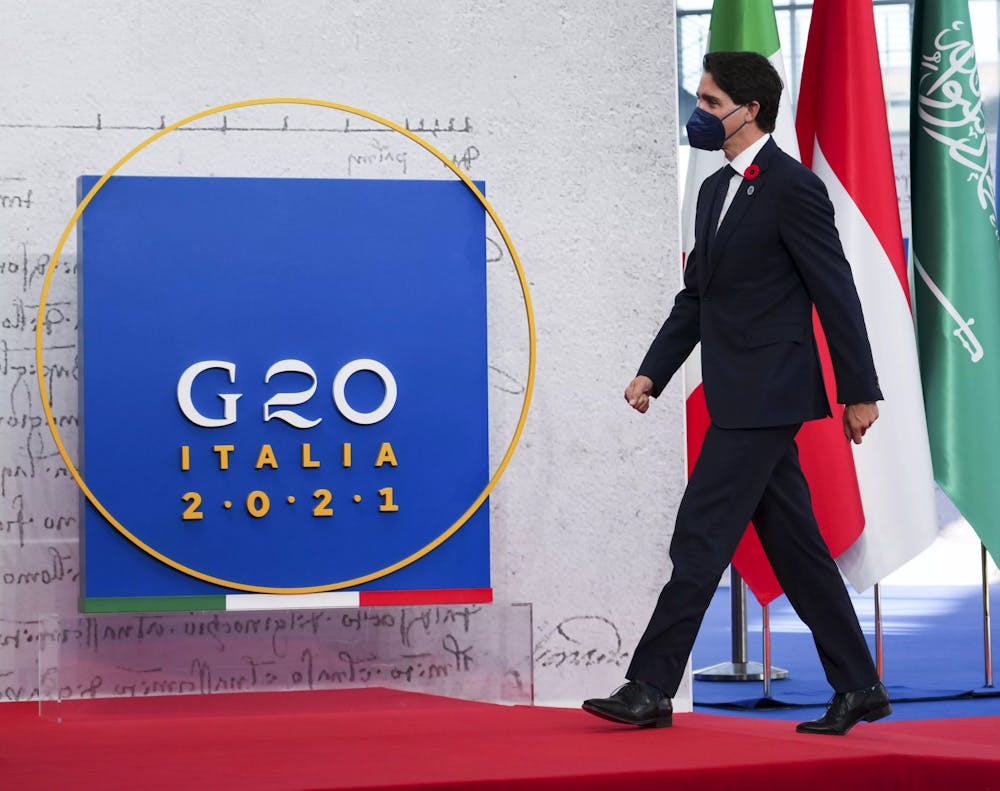Hailey Ruane
Staff Writer
On Oct. 31, the first GA Summit meeting involving leaders from 20 different countries was held in Rome, Italy for the first time in two years. They tackled multiple global issues centered around shared economic, political and health issues during the meeting.
Climate change was a huge focal point for this year’s meeting. According to The Guardian, the goals discussed included limiting global warming levels above 1.5 degrees Celsius, discontinuing funding for new dirty coal plants, and meeting a target of zero carbon emissions by approximately 2050.
Although these may sound like optimistic goals for the future of the planet, many have been doubtful of these plans as they seem vague and less urgent than they actually are. Although the ideas themselves are put toward good intentions, they are not directly stated goals that are guaranteed to happen. There were criticisms toward the climate change goals made, and Oscar Soria from the activist group Avaaz told CNBC, “there is no more time for vague wish lists, we need concrete commitments and action.”
The plans that were set in place during the GA Summit may not stop irreversible damage from happening in time before global warming levels reach dangerous temperatures. According to WeForum, dangerous warming could begin between 2027 and 2042, and the time frame has shrunk from the original time frame estimate from the Intergovernmental Panel on Climate Change that was between now and 2052.
Even if the plans made at the GA Summit meeting were to fall into place and succeed, CNBC stated that if emissions were decreased through the implementation of the plans made, the world is already headed for a warming of 2.70 degrees Celsius.
Taxation was another topic that was discussed. Companies such as Amazon, Google’s parent company Alphabet, Apple and Facebook are likely to be impacted by what was stated at this meeting. According to The Guardian, the leaders decided on a minimum 15% tax on multinational companies in order for more fairness in the taxation system. These massive companies have had bases in countries with lower taxes in order to lower their own tax bills.
Along with taxation, the global economy was discussed, including development aid and settling on a set amount of money to give toward the world’s poorest nations. The Guardian states that $100 billion of the $650 billion funds that were created by the International Monetary Fund (IMF) will be given to these countries.
Covid-19 also played an important role in this meeting, with vaccinations being a major topic that needed to be addressed. According to The Guardian, the country's leaders wished to fulfill the WHO’s goal to vaccinate at least 40% of the world’s population by 2022, and 70% by the middle of next year. This goal will be reached by sending vaccinations to countries that have lower vaccination rates due to a lack of supplies.
This year's GA Summit meeting was underwhelming to some looking to have more set goals, specifically when it comes to climate change and creating strict policies that will call for reform. Prime Minister Mario Draghi of Italy stated to CNBC, “either we act now, face the cost of the transition and succeed in moving our economy to a more sustainable path or we delay, pay a much higher price later and risk failing.”







